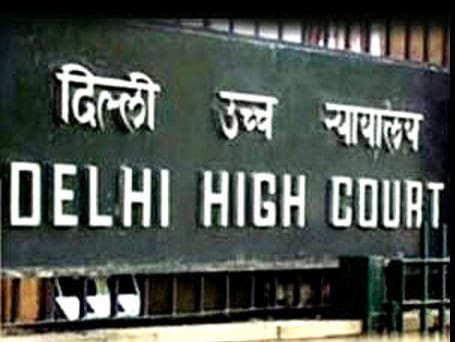Last Updated on July 10, 2021 12:39 am by INDIAN AWAAZ
The judgment was passed by Justice Prathiba M Singh on July 7 on a plea involving the applicability of the Hindu Marriage Act, 1955, in respect of parties belonging to the Meena community.

AGENCIES / NEW DELHI
The Delhi high court has said a Uniform Civil Code (UCC) should not remain a mere hope in the Constitution, expressing regret over conflicts in society due to differences in various personal laws.
Delhi High Court said that youth belonging to various communities, tribes, castes or religions who solemnise their marriages “ought not be forced to struggle with issues” arising due to conflicts in various personal laws, especially in relation to marriage and divorce.
A single-judge bench of justice Pratibha M Singh said there is a requirement for such a code that would be “common to all” and enable uniform principles being applied in respect of aspects such as marriage, divorce, succession, etc so that settled principles, safeguards and procedures can be laid down.
The court said that the modern Indian society was “gradually becoming homogenous” and “the traditional barriers of religion, community and caste are slowly dissipating.”
“The hope expressed in Article 44 of the Constitution that the state shall secure for its citizens Uniform Civil Code ought not to remain a mere hope. The Supreme Court had, in 1985 directed that the judgment in Ms. Jordon Diengdeh be placed before the Ministry of Law to take appropriate steps. However, more than three decades have passed since then and it is unclear as to what steps have been taken in this regard till date,” said Justice Prathiba M. Singh in a judgment.
The court made the observations in a petition questioning the applicability of the Hindu Marriage Act, 1955 in respect to a couple belonging to the Meena community. Even though it was admitted by the parties that the marriage was solemnised as per Hindu rites, the wife in response to the divorce petition filed by her husband had argued that the Act does not apply to them as they are members of a notified Scheduled Tribe in Rajasthan and thus they are covered by the exclusion under Section 2(2) of the Act.
In a judgment dated July 7 that was released on Friday, the bench said the need for a UCC has been reiterated from time to time by the Supreme Court.
“The hope expressed in Article 44 of the Constitution that the State shall secure for its citizens a Uniform Civil Code ought not to remain a mere hope,” justice Singh said in her judgment of July 7.
The court said more than three decades have passed since the apex court, in 1985, directed the law ministry to take appropriate steps.
“More than three decades have passed since then and it is unclear as to what steps have been taken in this regard till date. Accordingly, let the copy of the present judgment be communicated to the Secretary, Ministry of Law & Justice, Government of India, for necessary action as deemed appropriate,” the court said in a 27-page judgment.
The court’s observation came while hearing a plea involving the applicability of the Hindu Marriage Act, 1955 in respect of parties belonging to the Meena community.
The couple got married in 2012 under Hindu rites and customs and had a child in 2013. In 2015, the husband initiated a divorce petition in the trial court.
Opposing the same, the wife filed an application in a city court contending that the provisions of the Hindu Marriage Act, 1955 do not apply to the parties concerned as they are members of a notified Scheduled Tribe in Rajasthan. The trial court, while dismissing the husband’s divorce petition, held that the provisions of the Hindu Marriage Act would not apply to the couple, as they belonged to the Meena community.
Challenging this judgment, the husband had moved to the high court where the wife argued that even though she was married under the Hindu Marriage Act, that would not take away her status of belonging to a particular community.
On July 7, while setting aside this judgment, the high court said that even though the parties belonged to the Meena community, their marriage was solemnised according to Hindu rites and ceremonies and they follow Hindu customs.
It said that this stance has been made clear in various documents submitted by the wife, including the marriage invitation and the FIR.
The court said that if the members of a tribe voluntarily chose to follow Hindu customs, traditions and rites, they cannot be kept out of the purview of the provision of the Hindu Marriage Act.
“…nothing has been placed before the court to show that the Meena tribe has a specialised court with proper procedures to deal with these issues,” the court said.
